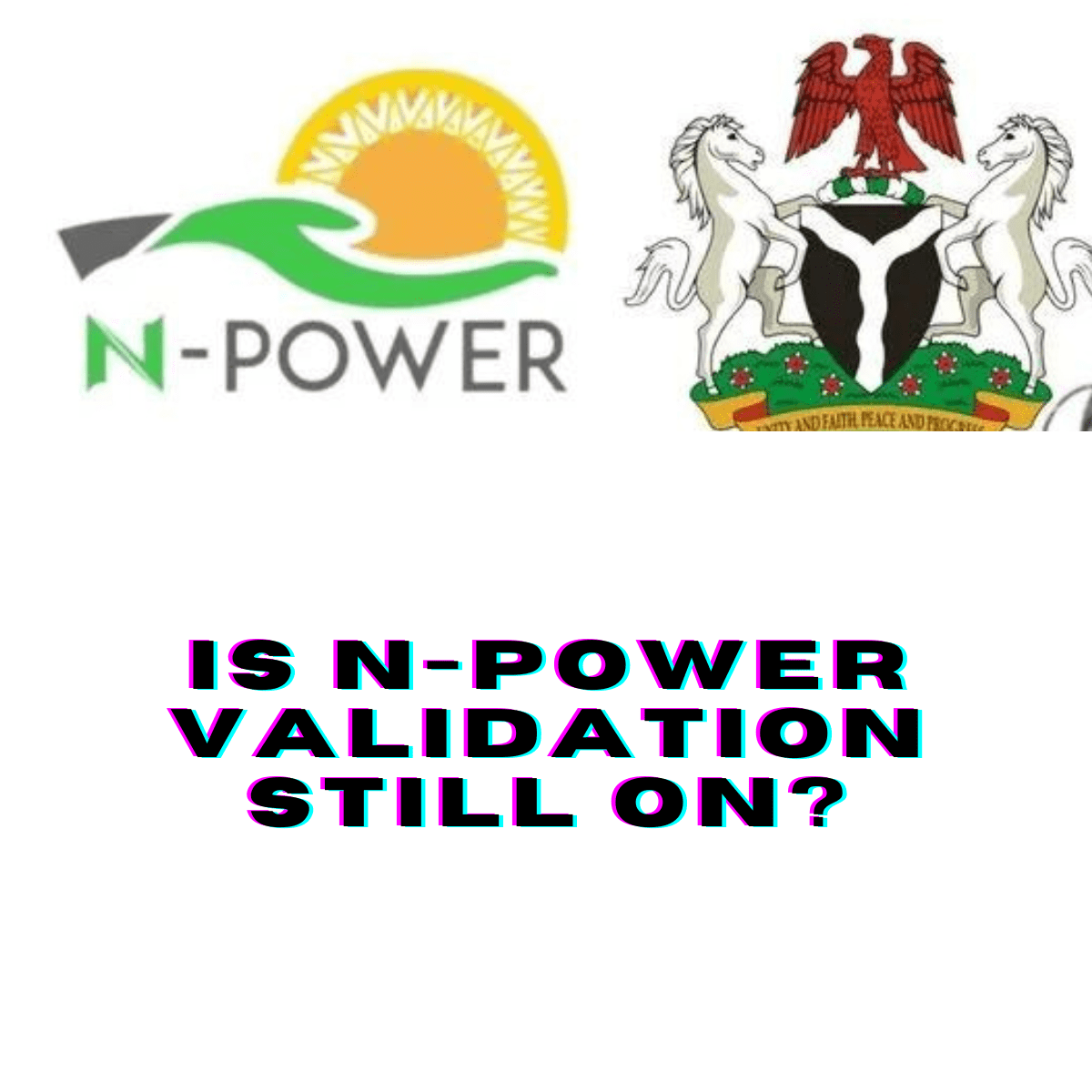In recent years, Nigeria has taken significant strides in addressing unemployment and enhancing skills development among its youth through various initiatives. One such initiative that has garnered attention and participation from across the country is the N-Power program. As someone deeply rooted in the Nigerian community and familiar with its socio-economic challenges and opportunities, I aim to shed light on the N-Power validation process, its current status, and its implications for Nigerian youths.
The N-Power program, launched by the Nigerian government as part of its National Social Investment Program (NSIP), aims to foster a more skilled and knowledgeable workforce by providing young Nigerians with job training and development opportunities. The program caters to various sectors, including education, health, agriculture, and technology, and plays a pivotal role in bridging the gap between the availability of skilled labor and market demand. However, a critical component of this program is the validation process, which ensures that only eligible and qualified individuals benefit from these opportunities. This brings us to the question at the heart of many prospective applicants and stakeholders: Is N-Power validation still on?
Understanding N-Power Validation
N-Power validation is an essential phase in the program’s application process. It involves verifying the accuracy of information provided by applicants and assessing their eligibility based on predefined criteria. This process ensures that the program’s benefits are extended to those who meet the qualifications, thereby enhancing its effectiveness and impact. But why is this process so crucial, and what does it entail for aspiring participants?
The Importance of N-Power Validation
The validation process serves multiple purposes. Firstly, it maintains the integrity of the N-Power program by ensuring that resources are allocated to eligible candidates who genuinely need and can benefit from these opportunities. Secondly, it helps to prevent fraud and misuse of government resources, ensuring that the program achieves its intended goals. Lastly, validation helps to tailor the training and resources provided to the specific needs and qualifications of the participants, thereby maximizing the program’s overall efficacy.
The Current Status of N-Power Validation
As of my last update, the N-Power validation process is an ongoing component of the program. However, it’s important to note that the specifics regarding timelines, criteria, and procedures may vary from one cycle to another. Applicants and interested parties are advised to regularly check the official N-Power website or official government announcements for the most current information.
This continuous validation process reflects the government’s commitment to ensuring that the N-Power program remains responsive to the changing dynamics of Nigeria’s labor market and the evolving needs of its youth. It is a testament to the program’s adaptability and its aim to provide meaningful employment and skills development opportunities to a broader segment of the Nigerian population.
Navigating the Validation Process
For prospective N-Power applicants, understanding and navigating the validation process is crucial. Here are some tips:
- Ensure Accuracy in Your Application: Provide accurate and truthful information in your application. Any discrepancy during the validation phase can lead to disqualification.
- Meet the Eligibility Criteria: Familiarize yourself with the program’s eligibility criteria, which can include age limits, educational qualifications, and other specific requirements based on the program’s track.
- Prepare Necessary Documentation: Have all required documents, such as identification cards, educational certificates, and any other required certifications, ready and in order for the validation process.
- Stay Informed: Regularly check the official N-Power website and official social media channels for updates on validation dates, processes, and any changes in criteria.
Frequently Asked Questions (FAQs)
Q1: Who is eligible for N-Power validation?
Eligibility for N-Power validation depends on the specific requirements of each program track. Generally, it targets unemployed youths within a certain age range who possess at least a post-secondary education.
Q2: How long does the N-Power validation process take?
The duration of the N-Power validation process can vary depending on the volume of applications and the specific operational protocols in place. Applicants should monitor official channels for updates.
Q3: Can I reapply if I fail the N-Power validation process?
Applicants who do not pass the validation process in one cycle may be eligible to reapply in future cycles, provided they still meet the program’s eligibility criteria.
Q4: How will I know the outcome of my N-Power validation?
Applicants are usually notified of their validation outcome through the contact information provided during the application process. Ensure your contact details are accurate and up-to-date.
Conclusion
The N-Power program stands as a beacon of hope for many Nigerian youths, offering a pathway to employment and skill development in a country grappling with high rates of unemployment and underemployment. The validation process is a critical component of this initiative, ensuring that the program’s benefits reach those who are most in need and most likely to benefit. As we continue to monitor the developments of the N-Power program, it’s crucial for applicants to stay informed, prepared, and proactive in their pursuit of these opportunities. The future of Nigeria’s workforce looks promising, thanks to initiatives like N-Power that are committed to empowering the youth with the skills and experience needed to thrive in today’s competitive global landscape.
